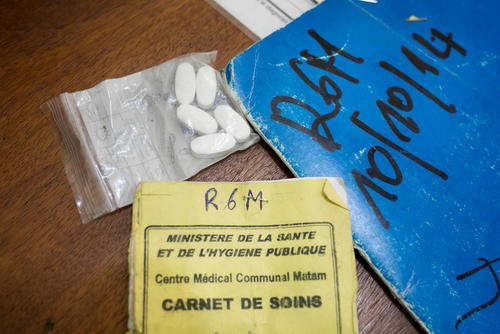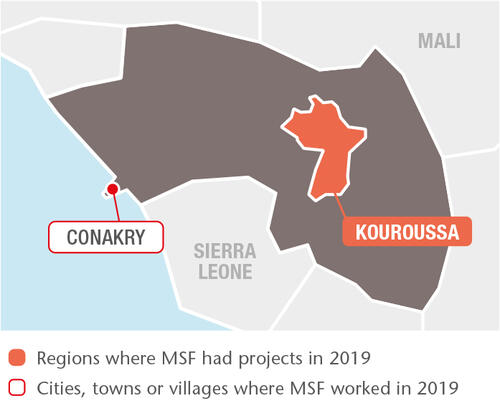
43,800
43,8
13,700
13,7
1,360
1,36
In 2019, we expanded our community-based child health programme to cover the whole Kouroussa prefecture, providing training and logistical support to 152 community health volunteers and 23 health posts and health centres to improve the detection, treatment and referral systems for patients with malaria, malnutrition and respiratory infections. Thanks to this approach, 47,927 children were diagnosed with malaria using rapid tests, and more than 38 per cent of them were treated directly in the community. Meanwhile, we continued our medical and logistical support to Kouroussa prefectural hospital, where nearly 2,460 children were admitted and treated for severe forms of malaria during the year. As we plan to close the project by the end of 2021, a roundtable with local, regional and central authorities was organised in order to guarantee continuity and community engagement.
Another focus of MSF activities in Guinea is HIV care. Fewer than half of HIV-positive patients have access to treatment and HIV-related deaths are on the rise. In the capital, Conakry, we continued to support testing, treatment and follow-up services for HIV patients through eight health centres and provide specialised care for advanced-HIV patients in the 31-bed unit at Donka hospital that we rehabilitated this year. We also ran public testing campaigns and awareness-raising activities, which led to 4,397 people being tested over the year.
In addition to running these regular projects, MSF conducted a selected catch-up vaccination campaign in Conakry’s Matoto district, vaccinating nearly 14,800 children with measles, oral polio and 5-in-1 vaccines (diphtheria, tetanus, pertussis, hepatitis B and Haemophilus influenzae type B), and treated 1,390 patients for measles.

















